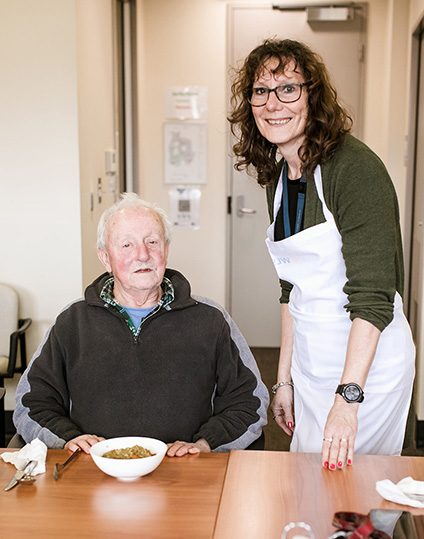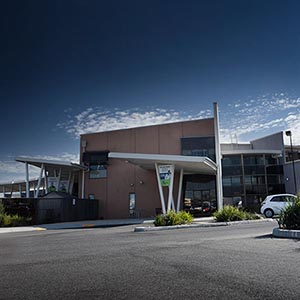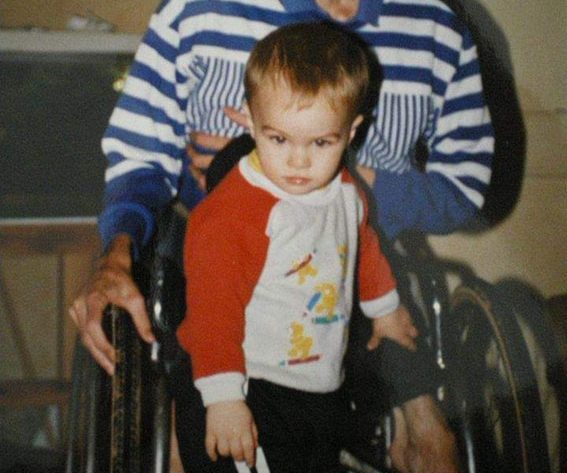
Jamie was seven when he placed his first bet.
His family did it for him, but only on the big occasions, like the Melbourne Cup or the AFL grand final. He would choose a horse he wanted to win, and his family would put money on it.
“I’ve been exposed to gambling my whole life,” Jamie says.
When he turned 18, one of the first places Jamie went was the local TAB. He put $100 on a horse straight after his year 12 exam. Eventually, everything he did – his hobbies and hanging out with his mates – involved betting.
Jamie’s gambling didn’t seem at odds with what the rest of his mates were up to – it was normal.
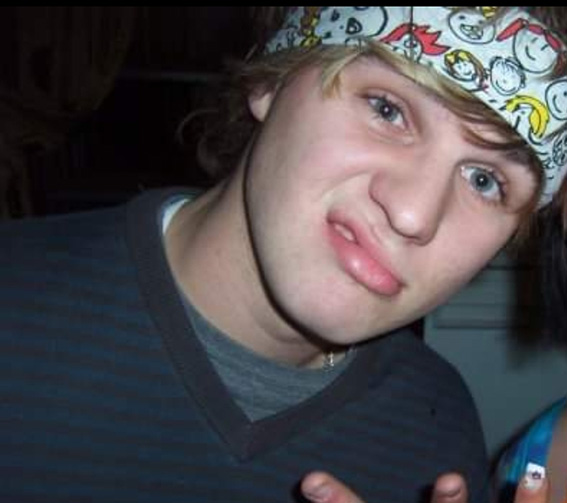
“I always thought I didn’t have a problem.”
“I was all good – I didn’t need help,” Jamie says.
“But it was definitely something I did to ease stress, and other times gambling fueled my stress. I was saturated. I fell into a really dark hole.”
Jamie’s mental health and gambling spiraled after the loss of a close family friend.
Before he knew it, he’d put $4,000 into online betting – this was gambling that he was hiding from his wife and family.
“When my wife found out, I realised I needed to stop – I just couldn’t keep doing this.”
Time to quit

The father-of-four, who works in community services, blocked online betting agencies, turned off or muted the TV when betting ads came on, and hid the same ads on Facebook to minimise his exposure.
“I was not well mentally, and I needed to address that in order to feel strong enough not to gamble,” he explains.
It’s been two-and-a-half years since Jamie placed his last bet. He has sought help for his mental health, sought and received a diagnosis for ADHD, and now spends time with his family doing things that are far less harmful.
“One of the major things I realised was: talk about it,” Jamie says.
“Speak to somebody, everybody, whoever. That has been the biggest help – owning what happened and having other people aware of what was happening for me, and also what may be happening for them.”
Chicken or the egg
Jacinta is a Gambler’s Help Therapeutic Counsellor in Gippsland. She says gambling and mental health is a bit like the chicken and egg conundrum.
“Which comes first?” she says.
People who experience grief, anxiety, or depression may initially feel relieved and even uplifted by the gambling experience.
“Some people say it’s where they ‘zone out’ and forget about their problems,” Jacinta says.
It is when the gambling event stops that a person feels a slamming home of the money they have just lost – often in a very short time.
“Financial losses and the inability to cover everyday costs is a major cause of mental health deterioration,” Jacinta says.
The lies begin with loved ones in an attempt to hide the losses, taking a person away from their core values. Anxiety and depression increase, and the cycle repeats itself.
“Like all addictive activities, people return to gambling to feel numb or uplifted, as this space feels temporarily better than the space of their everyday concerns,” Jacinta says.
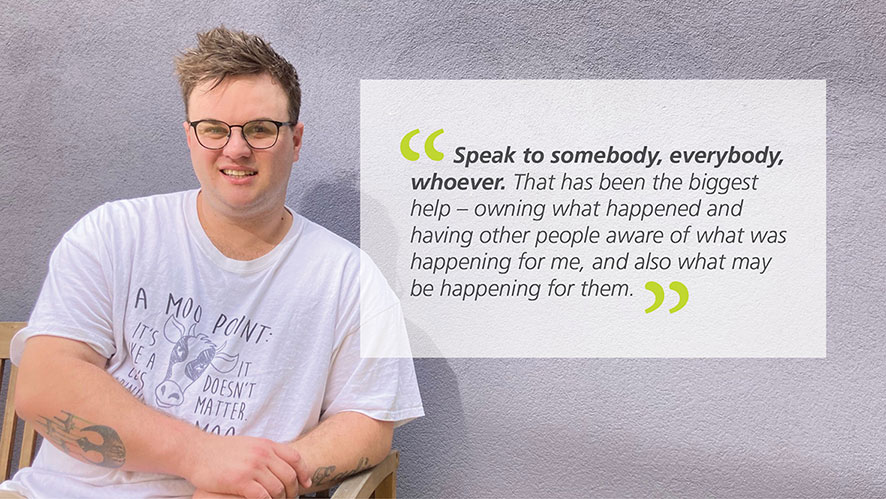
Know the signs
Sue, another Therapeutic Counsellor with Gambler’s Help Gippsland, says the best way to find out if you or someone you know is experiencing gambling harm is to ask.
“Ask yourself, ‘have I spent more money or time on gambling than I can afford?’,” she says.
If the answer is yes, it is a good idea to consider the impact of this.
Do your gambling losses make you feel ashamed or angry with yourself?
Are you lying to your family to cover up your shame?
Are you expressing anger towards loved ones or distancing yourself from family and friends to avoid difficult questions?
It may be time to seek professional help.
Family and friends can also get support
“If you’re worried about someone you know, approach them and show them you care,” Sue says.
“Tell them, ‘you seem worried and you’re spending a lot of time at the pokies / TAB / online – I am worried you may be having an issue with gambling.’”
Jacinta acknowledges it can be hard to start the conversation, but people who have the best outcomes are the ones who open up to their family and friends, and accept the help on offer.
“A person affected by another person’s gambling tends to experience anger and a loss of trust when they discover the truth,” she says.
It can be difficult to remain supportive, especially when your trust has been broken.
“We recommend people seek their own support with Gambler’s Help while their loved one is working to control their gambling,” Jacinta says.
“And if possible, try to separate the behaviour from the person you love,” Sue explains.
Overcoming the battle

Jamie’s family is no longer “drowning in debt because of gambling”. They are building a house. And, he can now go into an establishment for dinner without feeling the urge to gamble.
“I’m not seeking to put a bet on, and I’m not battling to not put a bet on either,” he says.
He continues to mute the TV when ads appear, and reports gambling content as ‘sensitive’ on social media platforms.
And for anyone who is wondering about seeking help, Jamie has this advice.
“If you’re seeking to gamble at inappropriate times – if you’re at work and you’re putting a bet on, or you’re forever checking the odds and needing to know what’s going on, or if you’re hiding it from your loved ones – these are all warning signs,” he says.
“I knew when I was overstepping the mark, because I would get the anxiety. I couldn’t not do it – it was an impulse. If your body is reacting to needing to bet or to losing or winning, something is taking control – you need to get some help.”
The link between gambling and mental health
There are strong links between gambling harm and mental health issues for many Australians.
The Victorian Responsible Gambling Foundation found three-quarters of people who seek help for gambling also have a mental illness. Forty-one percent of people who seek treatment for mental illness also gamble. About half of those people experience a range of consequences as a result.
This is what we call gambling harm.
Gambling harm can include gambling more money or time than you can afford, financial difficulties, loss of assets, relationship breakdowns, and anxiety or depression. The severity can range from momentary feelings of guilt or regret through to extreme outcomes like bankruptcy or fraud.
October 18-24 marks Gambling Harm Awareness Week – an opportune time to shine a spotlight on the harms gambling can cause.
If there is one message Jamie and the Gambler’s Help team want you to take away from Gambling Harm Awareness Week, it’s this:
It is possible to break the cycle. Life feels better when you’re in charge.
Help is available
Gambler’s Help Gippsland provides free, confidential counselling services to anyone who lives, works, or studies in Gippsland.
The team has therapeutic and financial counsellors who can help you change your mindset, get your finances back on track, and link you in with other health and community services.
Phone Latrobe Community Health Service today on 1800 242 696 from Monday to Friday during business hours. Or you can send us a message, and we’ll phone you back.
You can also phone the 24/7, statewide Gambler’s Help hotline on 1800 858 858.
If you’re struggling with your mental health, phone Lifeline on 13 11 14 or beyondblue on 1300 22 4636.
Not ready for professional help?
Take these quick and easy steps instead.
- Use an online app to block gambling sites.
- Sign up to the Self Exclusion program to stop yourself using pokie machines.
- Speak to your bank about blocking gambling transactions.
- Sign up to the 100 Day Challenge, where you can set goals, get advice, get ideas for alternative activities, and chat to others with lived experience.
- Speak to someone with lived experience from the Peer Connection Program. Phone 9450 2007.
- Talk to trusted family and friends and seek their support to take the next step.


